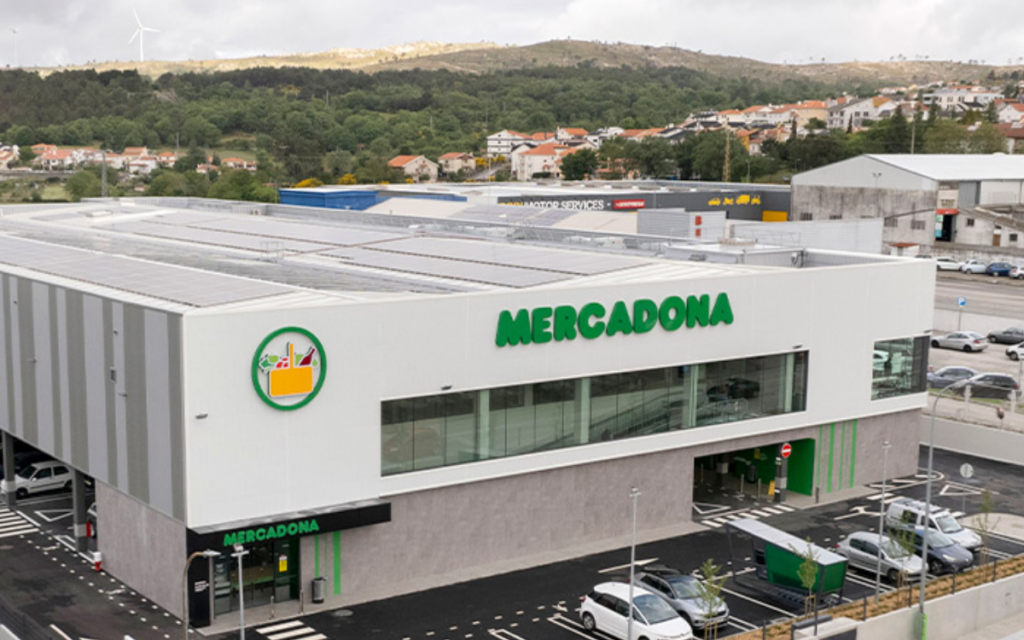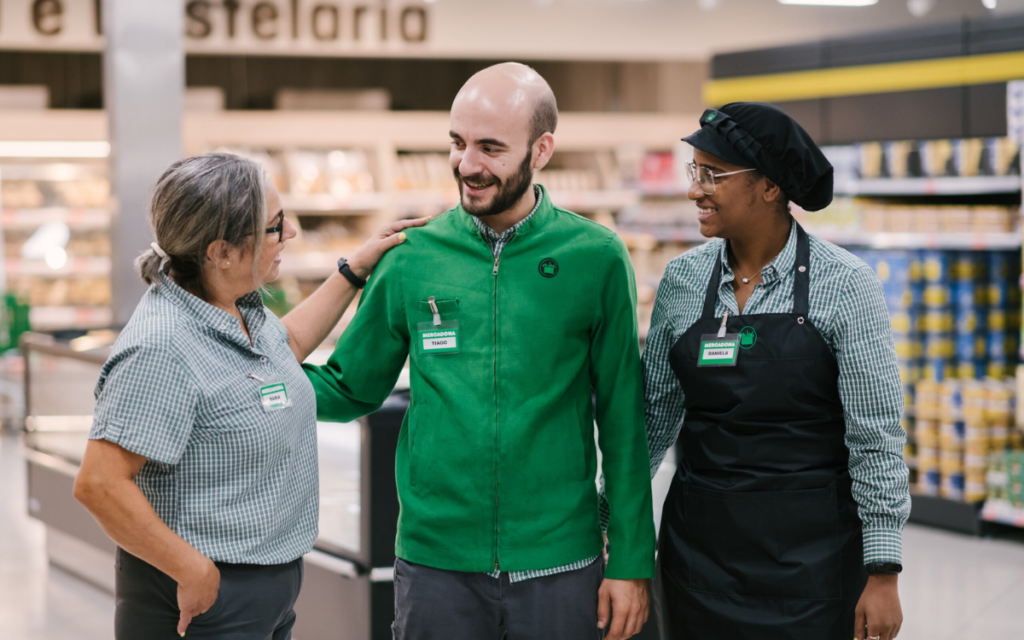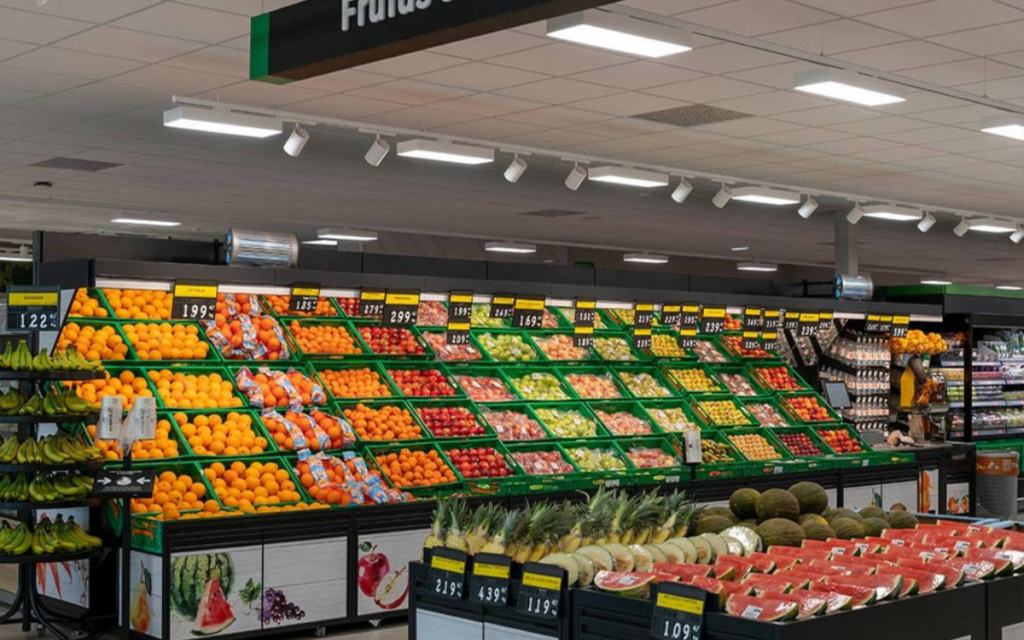Introduction: A Retail Giant in the Making
Mercadona, founded in Valencia in 1977, has grown from a small family-run butcher shop into one of the most dominant supermarket chains in Spain and Portugal. With over 1,600 stores across the Iberian Peninsula, the brand generates billions in revenue annually and employs more than 95,000 people. Its success is often attributed to a clear business strategy, customer-centric innovation, and an unparalleled supply chain.
This case study explores how Mercadona has achieved market leadership in Spain and expanded strategically into Portugal, positioning itself as a household name in the Iberian Peninsula.
Understanding Mercadona’s Business Model
1. Customer-Centric Approach: “El Jefe”
Mercadona refers to its customers as “El Jefe” (The Boss), reflecting its commitment to putting their needs at the forefront of its operations. The company uses customer feedback as a cornerstone for decision-making, constantly refining its product offerings and store layouts. This approach has led to high customer loyalty and satisfaction.
2. Private Labels: A Winning Formula
One of Mercadona’s distinguishing features is its extensive range of private-label products, known as “productos de marca blanca.” These products, accounting for around 40% of Mercadona’s sales, are high quality and competitively priced. The strategy not only enhances profitability but also strengthens customer trust.
3. Efficient Supply Chain Management
Mercadona operates on a vertical integration model, collaborating closely with suppliers to maintain consistent quality and reduce costs. By owning much of its supply chain, the company has streamlined processes, minimised waste, and increased operational efficiency.
4. Employee Investment
Mercadona’s philosophy includes treating employees as key stakeholders. The company offers above-average wages, shares profits, and invests heavily in training. As a result, it enjoys low employee turnover and high productivity, contributing to its competitive edge.

The Iberian Market Landscape
The retail industry in the Iberian Peninsula is highly competitive, with players like Carrefour, Lidl, and Aldi battling for market share. Despite the crowded market, Mercadona has maintained a dominant position in Spain with over 25% market share, largely due to its innovative strategies and strong brand equity.
Expansion into Portugal
In 2019, Mercadona entered the Portuguese market, marking its first foray outside Spain. This move was calculated and cautious, with the company investing €100 million to open just 10 stores in its first year.
The expansion strategy relied on:
- Market Research: Mercadona conducted extensive research to understand Portuguese consumer preferences, including taste profiles and shopping behaviours.
- Localisation: Products were adapted to fit Portuguese tastes, and signage, store layouts, and marketing campaigns were tailored to the local culture.
- Supplier Partnerships: Mercadona worked with Portuguese suppliers to ensure its offerings resonated with local shoppers.
By 2023, Mercadona had 49 stores in Portugal and plans to continue growing steadily.
Marketing Strategies Behind Mercadona’s Success
1. Simplified Value Proposition
Mercadona’s marketing focuses on simplicity and clarity. Its message revolves around offering high-quality products at affordable prices. The brand avoids flashy advertising campaigns, instead investing in consistent communication about value and trust.
2. Data-Driven Decision Making
Mercadona leverages customer data to predict trends and tailor its offerings. From product placement to promotions, every decision is informed by insights derived from shopper behaviour.
3. Sustainability Efforts
As sustainability becomes a core value for consumers, Mercadona has aligned its operations with green initiatives. These include reducing plastic waste, improving energy efficiency, and collaborating with suppliers to develop sustainable products. This commitment appeals to environmentally conscious customers and strengthens the brand’s reputation.

4. Digital Transformation
While traditionally focused on brick-and-mortar stores, Mercadona has embraced e-commerce in recent years. Its online platform offers delivery services in major cities, leveraging its robust logistics network to ensure freshness and punctuality. The shift to digital has allowed Mercadona to capture a younger, tech-savvy demographic.
Challenges in the Iberian Market
Despite its successes, Mercadona faces several challenges:
- Intense Competition: Discount chains like Lidl and Aldi are gaining traction with cost-conscious consumers.
- Rising Costs: Inflation and increasing wages impact profit margins, forcing the company to balance cost-cutting with quality retention.
- Sustainability Pressure: Meeting sustainability goals requires significant investment, which could strain resources in the short term.
The Path Forward: Mercadona’s Strategic Vision
1. Expanding Further into Portugal
Mercadona’s steady expansion into Portugal demonstrates its long-term commitment to the market. By continuing to invest in localisation and partnerships with Portuguese suppliers, the brand is well-positioned to capture significant market share.
2. Technological Innovations
Mercadona is doubling down on technology to optimise its operations. Plans include AI-driven inventory management, automated warehouses, and enhanced online shopping experiences.
3. Focus on Health and Wellness
With growing consumer interest in health-conscious products, Mercadona is expanding its range of organic, gluten-free, and plant-based offerings. This move aligns with broader trends in the retail industry and caters to evolving customer preferences.

Lessons for Marketers
Mercadona’s story offers several takeaways for marketers:
- Understand Your Customer: By treating customers as “The Boss,” Mercadona ensures its offerings align closely with their needs.
- Invest in People: Happy employees create better customer experiences, which in turn build brand loyalty.
- Adapt Locally: Mercadona’s success in Portugal underscores the importance of localisation when entering new markets.
- Think Long-Term: The brand’s measured approach to expansion prioritises sustainability and customer trust over short-term gains.
Conclusion: The Future of Mercadona in the Iberian Peninsula
Mercadona’s dominance in Spain and growing presence in Portugal position it as a retail leader in the Iberian Peninsula. By prioritising customer satisfaction, operational efficiency, and sustainable growth, the company has set itself apart in a fiercely competitive market.
As Mercadona continues to adapt to changing consumer trends and economic conditions, its commitment to innovation and customer-first thinking will likely ensure its continued success. For marketers, Mercadona serves as a masterclass in how to build a resilient and beloved brand.